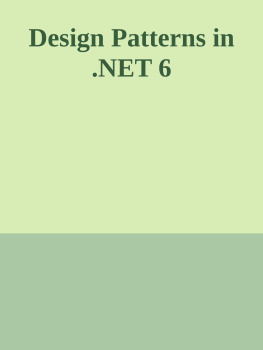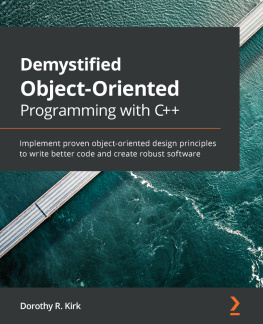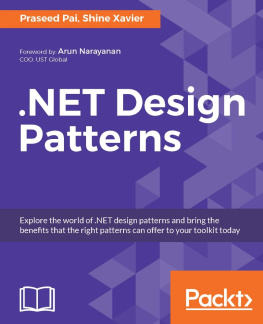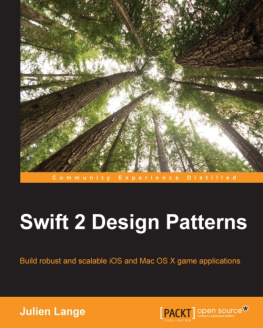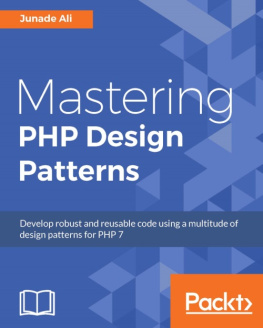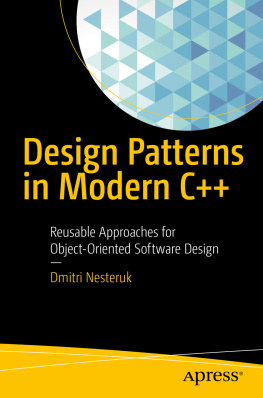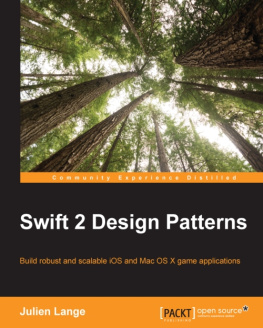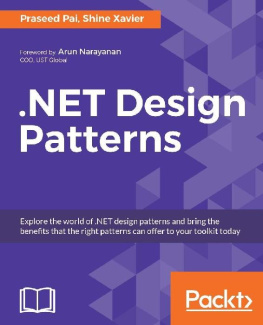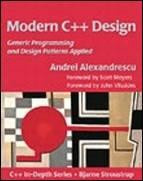Alexandrescu Andrei - Modern C++ Design: Generic Programming and Design Patterns Applied
Here you can read online Alexandrescu Andrei - Modern C++ Design: Generic Programming and Design Patterns Applied full text of the book (entire story) in english for free. Download pdf and epub, get meaning, cover and reviews about this ebook. year: 2001, publisher: Addison-Wesley Professional, genre: Computer. Description of the work, (preface) as well as reviews are available. Best literature library LitArk.com created for fans of good reading and offers a wide selection of genres:
Romance novel
Science fiction
Adventure
Detective
Science
History
Home and family
Prose
Art
Politics
Computer
Non-fiction
Religion
Business
Children
Humor
Choose a favorite category and find really read worthwhile books. Enjoy immersion in the world of imagination, feel the emotions of the characters or learn something new for yourself, make an fascinating discovery.

- Book:Modern C++ Design: Generic Programming and Design Patterns Applied
- Author:
- Publisher:Addison-Wesley Professional
- Genre:
- Year:2001
- Rating:5 / 5
- Favourites:Add to favourites
- Your mark:
Modern C++ Design: Generic Programming and Design Patterns Applied: summary, description and annotation
We offer to read an annotation, description, summary or preface (depends on what the author of the book "Modern C++ Design: Generic Programming and Design Patterns Applied" wrote himself). If you haven't found the necessary information about the book — write in the comments, we will try to find it.
In Modern C++ Design , Andrei Alexandrescu opens new vistas for C++ programmers. Displaying extraordinary creativity and programming virtuosity, Alexandrescu offers a cutting-edge approach to design that unites design patterns, generic programming, and C++, enabling programmers to achieve expressive, flexible, and highly reusable code. This book introduces the concept of generic components--reusable design templates that produce boilerplate code for compiler consumption--all within C++. Generic components enable an easier and more seamless transition from design to application code, generate code that better expresses the original design intention, and support the reuse of design structures with minimal recoding. The author describes the specific C++ techniques and features that are used in building generic components and goes on to implement industrial strength generic components for real-world applications. Recurring issues that C++ developers face in their day-to-day activity are discussed in depth and implemented in a generic way. These include:
Policy-based design for flexibility Partial template specialization Typelists--powerful type manipulation structures Patterns such as Visitor, Singleton, Command, and Factories Multi-method engines For each generic component, the book presents the fundamental problems and design options, and finally implements a generic solution. In addition, an accompanying Web site, http: //www.awl.com/cseng/titles/0-201-70431-5, makes the code implementations available for the generic components in the book and provides a free, downloadable C++ library, called Loki, created by the author. Loki provides out-of-the-box functionality for virtually any C++ project. Get a value-added service! Try out all the examples from this book at www.codesaw.com. CodeSaw is a free online learning tool that allows you to experiment with live code from your book right in your browser.
Type : Programming
Alexandrescu Andrei: author's other books
Who wrote Modern C++ Design: Generic Programming and Design Patterns Applied? Find out the surname, the name of the author of the book and a list of all author's works by series.

